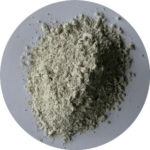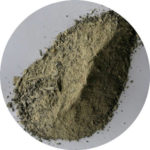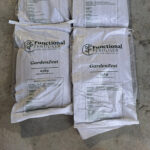PW Burton
Although dairy and lamb prices will inevitably rise sometime, most projections indicate no marked improvement during the next twelve months.
Keith Woodford, in his recent predictions for farming, suggests that the number of smaller family operated farms will steadily decline. However we’re not so sure.
Our work is primarily with smaller owner-operated farm businesses and we see a number of advantages that they have.
In tough financial times family owned and operated businesses reduce personal spending, well aware that the downturn is temporary, and that new vehicles, kitchens, and overseas holidays can be deferred for a year or two.
Because the really efficient operators have developed excellent observational skills to go alongside their technical expertise, decision making is more rapid, and often made almost in anticipation of events.
They’re not waiting for historical data to be entered into a model to tell them what’s happening, or relying on the model for the ‘correct’ answer and future course of action.
Models are essential, but they’re only as good as the information entered. In times of turmoil the ability to trust your own judgement and move quickly means short term pain is minimised, bringing the inevitable upside significantly closer.
Advantages are also found in the detail, in the areas where fine tuning makes a real difference. Empty rates in smaller dairy herds we work with are consistently below 10% and often close to 5%, due to careful observation.
With excellent reproductive performance herd quality steadily improves, culls are often sold as replacements for larger herds, and the financial savings are considerable.
Pasture management and its role in persistence is an area where smaller operations often have a real advantage. The worst performing paddock or area on a farm is usually the one furthest from the shed, simply because it is seldom carefully observed.
When the focus shifts to that area, and grazing takes place when the pasture is just past its rapid growth phase, and when sufficient animals are introduced to graze it to the ideal residual without re-grazing, performance immediately lifts.
It is now well accepted that the performance of permanent grazed pasture has steadily declined over the last twenty years, and it’s also accepted that the future of industry is based on the ability to maximise low cost pasture production.
The increase in pasture performance from the Functional Fertiliser monitor properties compared to district average is around 30%, the difference between 14,500kgDM/ha annually and 19,000kgDM, and the extra 4,500kg is produced at no extra cost.
The first question asked by the Head Agronomist of a large national farming organisation when visiting one of the properties recently was, “What’s the pasture renewal programme?” The question was answered correctly, “There isn’t one.”
The paddock we were standing in has regularly grown in excess of 20 tonnes of highly nutritious pasture in a twelve month period, and there’s no record or recollection of it being renewed in the last 50 years.
Permanent pastures should be exactly that – permanent. When the conditions under which clover flourishes is established, a wide range of higher fertility grasses establish and persist, year upon year.
The pastures are characterised at this time in the season by a mat of large leafed long solid-stemmed clover, and with no patches of bare soil. Recent testing shows high levels of active mycorrhizal fungi, just one of the reasons pasture growth over dry periods remains strong.
Because the soil has a large number of granular aggregates, plant roots are able to extract both nutrient and moisture well below 250mm, and with carbon being continuously sequestered, moisture holding capacity also increases.
Over the eight years of monitoring, the pasture production trend line has lifted, providing the owners and sharemilkers with the ability to steadily reduce costs without jeopardising total farm production, ensuring their long term future on the property is both profitable and highly satisfying. For more information call Peter on 0800 843 809.




